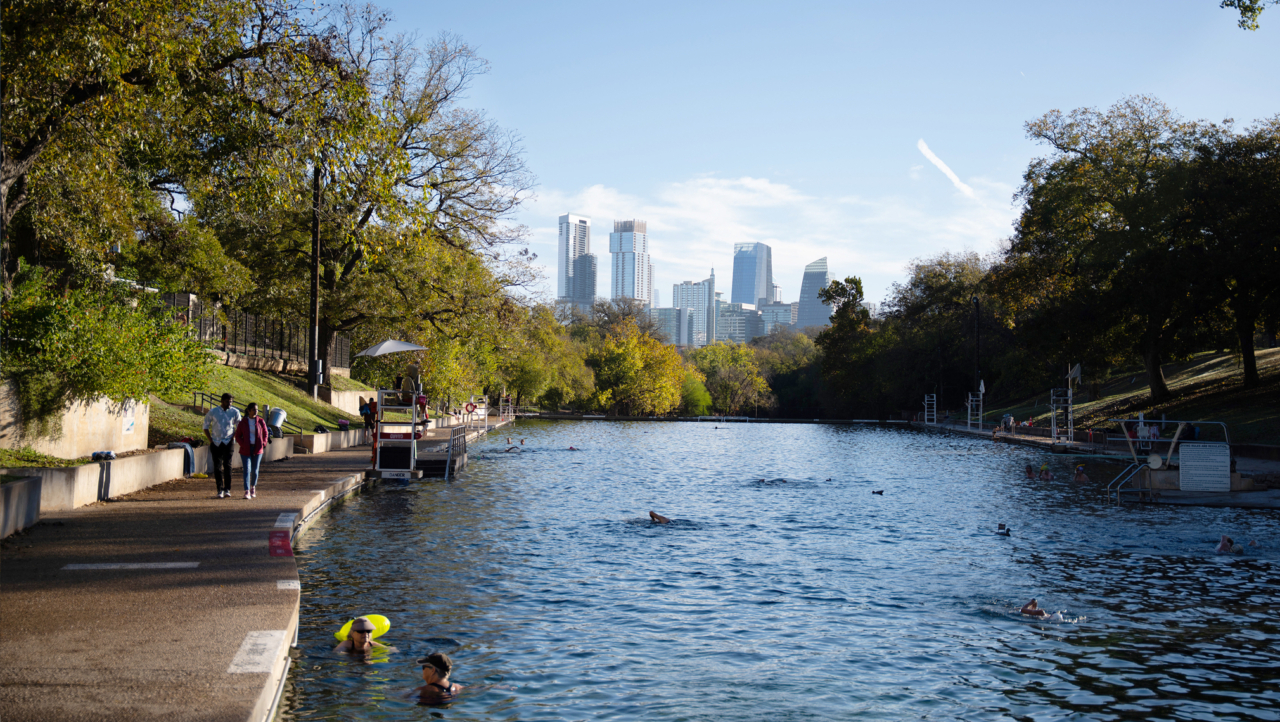The 15 Biggest Renter Mistakes to Avoid
Learn how to sidestep these common — and often costly — pitfalls.


Written by May Ortega on September 14, 2025
Renting your own place for the first time is an exciting undertaking, but it’s one that can be full of challenges, too. From unexpected expenses to unwelcome surprises (why did I not notice the leaky pipes in the kitchen?), there are countless things that can go wrong, leaving you feeling stressed and even financially strained. This guide will help you avoid missteps during the renting process and set you up for a successful tenancy.
Mistake No. 1: Not setting up a budget
It’s easy to get swept up in the excitement of a new home and overlook some of the more practical aspects, like establishing a realistic budget to ensure a comfortable and sustainable lifestyle. Among the most common mistakes first-time renters make is underestimating the full cost of renting beyond the monthly rent itself. Expenses like utilities and internet can add up every month, potentially straining your budget. And they’re not always included in the base rent, so it’s essential to include these factors in your financial planning before you start browsing for places to live.
Figure out how much you can afford to pay with our Rent Affordability Calculator. Just plug in a few things like how much you make (after-tax), along with any monthly debts and your monthly expenses. The calculator estimates your gross income and shows rentals priced up to 40% of that amount, because that is often the threshold property managers use to qualify applicants. From there, you can adjust the rent slider to see how different rent amounts affect your monthly budget and how much you’ll have left over after paying rent.
Keep in mind to include costs such as:
- Pet fees
- Utilities
- Internet
- Amenity fees
- Parking costs
Mistake No. 2: Not researching the local market
Maybe the first rental you find feels like “the one,” but not so fast. You might get a better deal — or even find another place that fits your wants and needs even better — if you know your market.
Without a clear understanding of how much similar properties in your area are renting for, you might end up overpaying, or settling for a lower quality rental than you can afford. Researching rates in the city you want to live in can help you negotiate a fair price, or find a better deal. Zillow is a great resource for this. We keep track of the average rent in cities all over the country, in real time, through our Home Values Index page. Scroll down and input whatever city you want to see average rent rates for, and see how that number has changed over time.
Then you can search for rentals on Zillow and filter by price (among lots of other things). By comparing rent prices, you can ensure that you’re getting the best value for your money and that your budget aligns with the local market.
Mistake No. 3: Not asking landlords the right questions
Not asking your landlord the right questions can lead to a lot of headaches. It’s easy to overlook the finer details, especially if this is your first rental and you’re just excited to move in. But those details can often make or break your living experience.
Take, for example, the maintenance policies. It's a common assumption that landlords handle all repairs, but this isn't always the case. By clarifying things like how you could get your security deposit back when you move out, or what security measures are in place on the property, that could help you decide if you want to live there.
Mistake No. 4: Not creating a portable rental application
A portable rental application is a reusable rental application containing information like your background check and credit history. Instead of completing a new application for each property you’re interested in, you can use a single one to apply to multiple rentals. It can be submitted to participating landlords who are on or off Zillow, thus saving you from paying their application fees. That extra money can be useful come moving day.
Mistake No. 5: Not looking out for scams
Yes, scammers do pose as legitimate landlords and take advantage of unsuspecting renters. One of the most critical steps you can take to protect yourself is to verify the identity of the landlord and the ownership of the property before signing any lease. One thing to pay attention to is the landlord's conduct. A rush to get you to move in, evasive about details, pushy communication, or demands for immediate payment without a formal lease or a proper viewing are all red flags. If something feels off, trust your instincts.
Mistake No. 6: Not having all your documents lined up
Applying to live anywhere will require you to provide documentation to prove that you are who you say you are, that you’re a trustworthy tenant, and that you can afford rent. That can range from your ID to a couple of pay stubs. If you don’t have these things (and some more) ready to go, it could delay the application process, or end up in a flat-out denial of your application.
Mistake No. 7: Not reading the lease carefully
A lease is a legal document, and not understanding it can lead to some problems. Familiarizing yourself with the regulations and guidelines of your rental is more than just avoiding penalties; it's about creating a harmonious community. Each landlord and property may have a distinct set of rules and consequences, and you should understand them all.
Reading the lease closely is also important to help you catch any red flags. Vague fees, for instance, can be a sign of trouble. If the lease mentions fees without clearly defining what they are or how they will be charged, and you don’t catch that, you could be forced to pay. If there are terms in the lease that seem unclear or unreasonable, it's a good idea to discuss them with your landlord, or seek legal advice before signing.
Mistake No. 8: Not touring the rental before you sign your lease
If a property has a virtual tour, you should take advantage of that feature to see if it catches your eye. This is especially helpful if you can’t go tour the space in person before moving in.
If you get the chance to see a rental in person, do that too. During a live tour, you can spot things that might not be visible in photos, such as the condition of the flooring, the presence of mold or dampness, and the overall state of the walls and ceilings. These details can give you a sense of how well the landlord takes care of the property. Use this rental walkthrough checklist for a thorough review.
Mistake No. 9: Not considering your commute
Take a moment to think about your daily commute. It’s easy to get caught up in the aesthetics and amenities of a potential apartment or house, but the journey to and from your workplace, your doctor’s office, or other important locations, can significantly affect your day-to-day life. A renter mistake many make is underestimating the impact of a long commute. The hidden costs of a long commute are not just financial, but also personal. You could lose time during a lengthy commute — time that could be spent relaxing or otherwise living your life.
Mistake No. 10: Not considering if a rental matches your lifestyle
Think about how a given space will fit into the way you live your life. For example, if you work from home, a cramped or cluttered apartment can quickly become a source of stress. Consider the flow of the rooms and how they align with your daily activities. Does the kitchen have enough counter space for meal prep? Is there a dedicated area for your home office? These details can make a significant difference in how enjoyable and functional your living space is.
Mistake No. 11: Hiding your pets
Choosing not to disclose that you’ll be living with a pet sounds like a good way to save yourself some money, but unexpected fees or even eviction are possible if your landlord discovers an animal where one wasn’t supposed to be. These consequences not only disrupt your peace at home, but they can also damage your rental history, making it harder to find a new place in the future.
When you look for a place to rent on Zillow, you can filter for pet-friendly properties, so you don’t need to worry about falling in love with a spot that won’t love your dog, Spot.
Mistake No. 12: Not getting renters insurance
Your landlord might require you to have renters insurance. And even if they don’t, having renters insurance can give you peace of mind. Don’t assume that you are immune to the risks that insurance covers. Whether you live in a high-rise apartment or a cozy cottage, the potential for theft, fire, or water damage may be present. If you’re not sure where to get renters insurance, Zillow offers plans starting at $8.33 a month. And you can get covered in less than five minutes.
Mistake No. 13: Not asking potential roommates the right questions
Finding the perfect roommate is more than just splitting the rent; it’s about knowing what you’re getting into so you can have a harmonious living situation. Asking questions about cleanliness, financial stability, and social compatibility are some of the big themes you should focus on when looking for someone to live with. Before you sign a lease together, have an open and honest conversation about how you’ll handle shared expenses and how each of you feel about having people over, to name a few things. Setting some roommate rules may be just what you need to keep the peace.
Mistake No. 14: Decorating before reading your lease
There are lots of ways you can personalize the space you’re living in, be it with some art on the walls or using wallpaper. But many leases have specific clauses that outline what you can and cannot do when it comes to making changes. These restrictions can vary widely, from prohibiting any alterations at all, to allowing certain modifications with your landlord’s approval. Ignoring these rules can lead to renter mistakes that might force you to kiss your security deposit good-bye, so it’s crucial to be well informed. If you’re not sure what you can do, or you want to do something that’s not allowed in your lease, ask your landlord for approval.
Mistake No. 15: Not having a list of essentials
You might find yourself settling into your new apartment only to realize that you forgot to bring bedding; or even worse — toilet paper. The thought of lacking something so important when you’re trying to unwind post-move-in can lead to a stressful start to your new living situation. We’ve created a checklist of everything you’ll need for your first apartment (and it’s useful if this isn’t your first, too). We cover cleaning supplies, kitchen necessities, and lots more. It may be your first time renting, but if you prepare well, you’ll feel like you’ve done this a million times before. And if you feel like you need a little extra help, we’ve got lots of renter tools to help make your journey a breeze.
Find an apartment you’ll love on Zillow
With Zillions of up-to-date listings and filters for your must-haves, it's easy to find your perfect apartment on Zillow Rentals.
Search rentals


